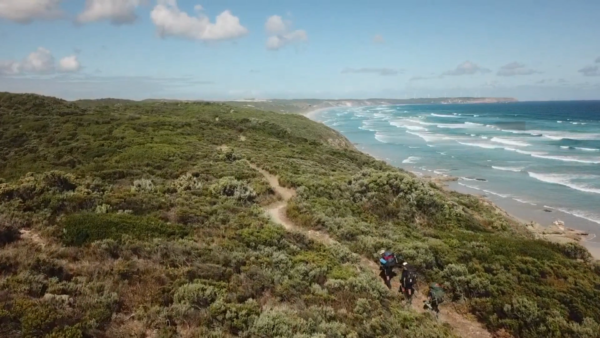Return to Outdoor Education
The temperature is warming up, the days are getting longer and plans are underway to get our boys back into natural environments when restrictions allow.As parents and carers, there is a strong desire to see the boys disengage from technology for a little while, roam a little freer, and engage with expanded communities of peers. The BGS Outdoor Education programs provide a great avenue to achieve these outcomes and reconnect with people and land without the aid of digital technology.
The OE team is well into preparations for the Great Southwest Journey, our pinnacle experience for Year 9 boys. We have made some modifications due to COVID-19 and with the understanding that we’ve all been staying close to home and sitting down a lot more than normal over the past four months.

Some boys will be excited for the chance to roam further afield, breathe the fresh air and gaze out on natural landscapes; others will be looking forward to the social connections they’ve been missing with their peers, and some will be really nervous about entering back into larger groups of people away from their family bubbles.
We are all going to feel nervous at some level when it comes to reintegration after distance learning and working from home ends; let’s acknowledge that for more of us (students and teachers) than in previous years, getting back into the classroom is causing various levels of anxiety, let alone the thought that we’ll need to live in a small community of peers and partake in sustained physical and social activities.
Australian research, conducted pre-COVID from 2011-2015 through the Outdoor Youth Programs Research Alliance (OYPRA), found clear evidence that participant mental health was improved as a result of outdoor learning programs of five days or greater. The study ‘identified that students with higher levels of anxiety and those with low confidence are likely to benefit the most from outdoor learning programs.’ (OYPRA research findings summary report, 2018).

An early phase of the research also found that students who attended were more independent, worked harder at school, felt more important in the school community, felt connected to and accepted by others during the program; all this regardless of school, type of camp, or student gender (OYPRA, 2018); these benefits were universal and were not direct aims of the programs run.
With October being Mental Health Month, we acknowledge that this year will be hard for our boys to feel like they can tackle the challenges ahead. As we ramp up the preparations for the boys in the lead up to their GSWJ, feel secure that there are direct benefits for them to attend in the medium and long term.
David Gemmell
Director of Outdoor Education
